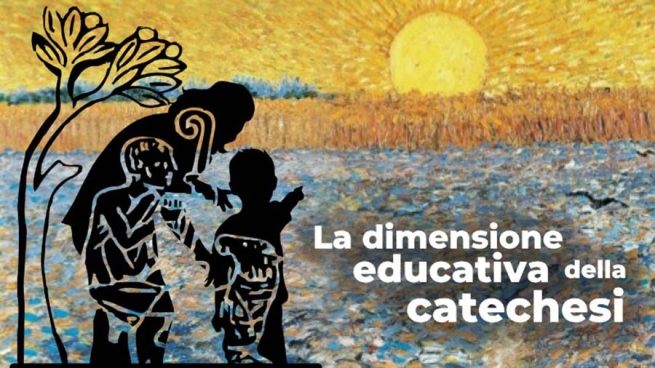From its origins until today, the ICa has felt a strong educational and "pedagogical" identity both as an institutional, academic location and setting (first as an integral part of the Institute of Pedagogy, then of the Faculty of Educational Sciences), and as an ecclesial and charismatic anchor for the original educational and typically "catechetical" vocation of the Congregation of the Salesians of Don Bosco (cf. C. SDB, 34).
In the current historical contingency in which the"educational emergency and urgency" is felt and a widespread "educational latency", marginalisation, if not the "removal" of the pedagogical perspective, the ICa has felt the need to involve those who care about the education of the life and faith of individuals and communities, of subjects in all ages and in all conditions of life in reflection for a renewed commitment on the ground to innovative, faithful and creative educational dynamics. The educational soul of catechesis demands a rethinking and a re-expression by remembering the past, looking at the challenges of the present and dreaming of new ways of searching for meaning in the light of the Gospel and according to the new "spiritual" energies (according to the creativity of the Spirit) that are emerging from the human and ecclesial soil.
The choice of title for the event, "symposium", brings with it the desire for a broad involvement of reflection, in which everyone can intervene in various ways and according to their singularity and geographical and cultural origin, and be involved in in-depth study and thematic development. This streamlined method was chosen compared to a Congress or a Conference, because it allows for "tasting" and agile "input" and significant and effective onres on the subject, in order to be a point of arrival and departure for a more concerted reflection, the result of broad discussion.
The Symposium was prepared by a survey that involved Past Pupils from 2000 to 2020, and a developed and extensive interview in which 41 catechetics from all over the world participated. In addition, an exhibition illustrating the history of the Institute through photographs, texts and documents, as well as the many publications of the ICa in the field of religious pedagogy and catechetics, will be held in the University's atrium from 4 to 12 November.
The symposium on 8-9 November will involve three stages: the first of a historical-retrospective nature on the past, the second of an analytical-interpretative nature on the present, the third of a prospective nature that opens up the future of the educational dimension of catechesis.
Well-known catechists from various parts of the world will speak: Caroline Bacher Martinez (Argentina), Giuseppe Biancardi (Italy), Francesco Cosentino (Italy), André Fossion (Belgium), Roberto Franchini (Italy), Thomas Henry Groome (United States of America), Albertine Ilunga Nkulu (Congo), Luciano Meddi (Italy), Marijana Mohorić (Croatia), Joël Molinario (France), Luis Resines (Spain), Pier Cesare Rivoltella (Italy), Jerome Vallabaraj (India). The various phases of the Symposium will be moderated by Benny Joseph, Antony Christy Lourdunathan, Ubaldo Montisci and Giuseppe Ruta, members of the ICa and promoters of the initiative.
They will give their best wishes and greetings: Card. Matteo Maria Zuppi, President of the Italian Episcopal Conference (CEI), Card. Ángel Fernández Artime, Rector Major Emeritus of the Salesians; Fr Stefano Martoglio, Grand Chancellor of the UPS, and Fr Andrea Bozzolo, Rector Magnificus of the UPS; Msgr. Valentino Bulgarelli, Undersecretary of the CEI and Director of the National Catechetical Office, Fr Simone Bruno, Editorial Director of Edizioni San Paolo, and Fr Walter Rossi, Director of the Catechist Dossier of the publisher Elledici.
Numerous friends of the ICa, students and past studnets, as well as catechetical enthusiasts will be present and connected online.
Aware that even the term "catechesis" in its verbal, nominal and adjectival declensions, manifests different critical issues,the thinking is that reflection on the anthropological, educational and formative nature can clarify and give new life and vitality to the processes of human maturity and faith. The service rendered over more than seventy years will be able to continue both in the academic field, and in the context of ongoing formation and the start of self-formation for the many ICa Past Pupils scattered across the five continents and for those who want to join this movement of updating and cultural growth.
The ICa in Rome believes that this should be tried, with the conviction that it is worth every effort aimed at renewing the commitment to promote this ecclesial antiquum ministerium with courage and determination in the broader context of evangelisation and humanisation of the world.
The detailed programme of the event is available at the bottom of the page.


